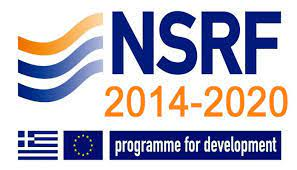SYMSITES Project
The processes and companies dedicated to recycling have been here for some time implemented in our society. However, in most cases, the approaches are restricted to a certain scope of action. The waste is disposed of using selective collection containers. The municipal company relocates it to the urban waste treatment center where, it is classified and goes for material recovery, incineration or landfill. The recovered materials are sold as secondary materials to companies and industries, which use them for new manufacturing processes. Ultimately, new products that are made up of a percentage of recycled materials reach citizens through marketing channels. All these links shape the circular economy chain. However, each one separately is incapable of closing material cycles since it requires the functions and the support that the rest fulfills.
Thus, the implementation of “Industrial Urban symbiosis and its social, economic and environmental impact on different European regions” project (No.: 101058426) with the acronym “SYMSITES” (awarded within the European call: HORIZON-CL4-2021 TWIN-TRANSITION-01-14), whose objective is to develop new technologies and stakeholders engagement methodologies, will pave the way to prove the concept of regional Industrial-Urban Symbiosis, by bringing together different organizations for the proper functioning of the circular economy. Far from the competition paradigm, cooperation and collaboration among citizens, municipalities and companies is needed. Thus, each entity involved in waste management is a link within the waste management chain (Figure 1).

“SYMSITES” brings together 30 partners from 9 different countries. Its members include universities, research centers, private companies, wastewater management plants and local government associations, coming from Spain, Denmark, Austria, Greece, Germany, Belgium, Italy, Romania and Israel. During the execution period of 48 months, four (4) hubs called “EcoSites” will be installed in four European regions with different economic, social and environmental aspects, namely: Spain, Denmark, Austria and Greece. With the aim of both demonstrating this concept and as a key element of the project, the EcoSites, abovementioned, will treat industrial waste of different origin. (Figure 2)
– Spain: cosmetic and textile industries.
– Denmark: brewery and local agriculture.
– Austria: meat industry.
– Greece: olive oil industry.

The role played by the “EcoSites” is very simple. They are based on wastewater treatment plants, industries or agriculture companies in the region forming a hub that will collect wastewater, biowastes, and non- recyclable waste generated by both the urban and industrial environments. A novel co-treatment will be established at the regional wastewater treatment plants to generate clean water, energy, several upcycled side streams of products (sludges, biogas.), and high added value products (platform molecules, fertilizers, PHAs), etc. for reuse by the industries in the specific region.
- The Greek “EcoSite” and SIRMET S.A. role
The Greek “EcoSite” is based in Western Achaia, Greece, whose dominant economic source in the primary sector of agriculture. The Industrial-Urban Symbiosis (I-US) will be developed and applied in a small area (8 km), where the public body, Municipality of Western Achaia (MWA) and the Elaiourgikes Epixeiriseis Patron (EEP) (olive oil pomace production and refinery industry) are established. All “EcoSites” will consist of an Anaerobic Membrane Bioreactor (AnMBR) and an Adsorption Column (AC). The treatment flow will be up to 4 m 3 /day. The treatment technologies will have two feed tanks (for Waste Water and for Bio Wastes) which will be pumped into the AnMBR reactor that will produce biogas (to be transformed into methane or hydrogen based as an energy source). The operation conditions will be modified at the Greek “EcoSite” to favor hydrogen bacteria population via dark fermentation. After the reactor, the advanced antifouling treated membranes will separate sludge and water that will be directed to the AC- the tertiary treatment to obtain a reusable water.
Partners involved are the
(a) The National Technical University of Athens (NTUA) who will be the “EcoSite” manager,
(b) SIRMET S.A., an SME company involved in Enviromental Engineering & Management who will construct
the pilot demonstrator
(c) Municipality of Western of Achaia (MWA), who operates the Waste Water Treatment Plant within the
municipality and
(d) Elaiourgikes Epiheiriseis Patron (EEP) an olive oil pomace production and refinery industry



